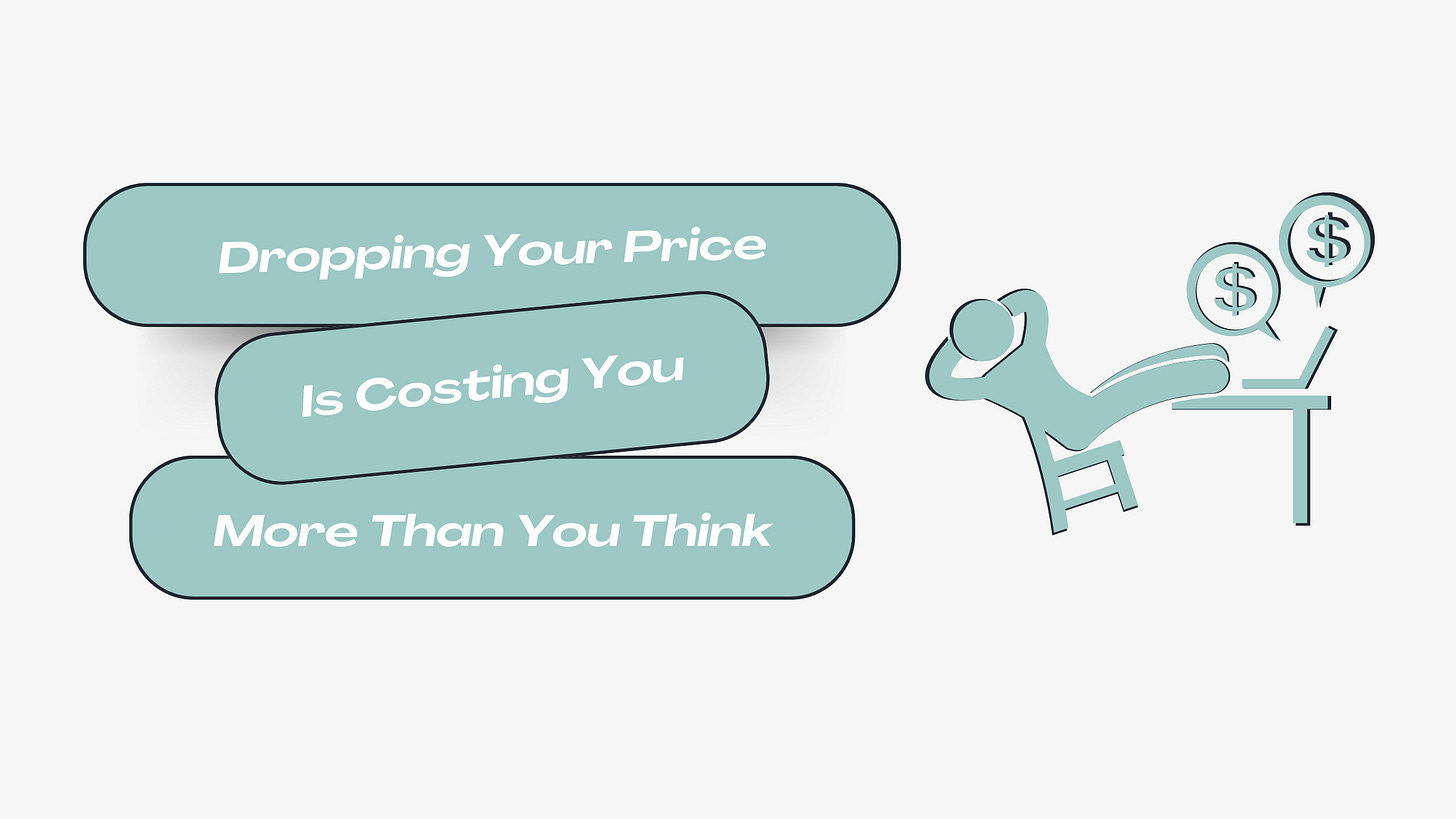8 Reasons Why Dropping Your Price Is Costing You More Than You Think
How Holding Your Price Protects Profits, Builds Loyalty, and Strengthens Your Brand in a Competitive Market
As a marketing leader with 20 years of experience, I’ve seen many businesses make one costly mistake: lowering their Price just because a customer asks. It may seem like an easy way to close a deal, but this approach often creates bigger problems than it solves. Here’s why standing firm on your Price is almost always the smartest choice.
1. Discounting Shrinks Your Profits Dramatically
Let’s start with the numbers. Imagine your profit margin is 10%, and you offer a customer a 5% discount. Suddenly, your profit is cut in half. You’d need to sell twice as many products or services to make up for the lost profit. But does a small discount really double your sales? Rarely. Usually, you end up working harder for less money.
Even worse, once you give discounts regularly, customers expect them all the time. This expectation spreads, eating into your profits further and damaging your brand’s premium reputation.
2. “Too Expensive” Is Often Just a Negotiation Tactic
When a customer says your Price is “too expensive,” they’re often not telling the whole truth. They might be comparing you to competitors, doubting the quality, or simply unsure about whether your product fits their needs.
Most times, what they really want is to feel like they’re getting great value, not just a lower price. Cutting your Price doesn’t solve this; it just hides the real issue.
3. If They’re Interested, They Usually Can Afford It
Think about a customer walking into a luxury car showroom like BMW. If they ask about Price, it’s rarely because they can’t afford the car. If the car costs $55,000, they probably didn’t come in with only $49,000 to spend. If they did, they likely don’t want the car enough to buy it.
The same applies in most industries. Genuine buyers typically have the means. If Price is a real concern, no discount will change their mind.
4. People Value More Than Just the Lowest Price
Do you always pick the cheapest option? Most people don’t. Instead, they think about quality, features, brand reputation, and how the product makes them feel.
For instance, when choosing between a BMW and an Audi or a Ferrari and a Lamborghini, Price is rarely the deciding factor. Buyers choose the brand they connect with, not the one that’s just a little cheaper.
5. Discounts Set a Dangerous Precedent
Giving one customer a discount can lead to many problems. That customer will expect discounts regularly and may tell others about the deal. Suddenly, everyone expects lower prices.
Worse, your team may start relying on discounts to close deals instead of selling on value. This hurts your profits and damages your pricing power.
6. Your Price Should Reflect Your Value
Successful companies set prices based on their product’s worth, competitive positioning, and how much they want to sell. For example, Ferrari prices its cars high to limit demand and protect the brand. Lowering prices to increase sales could damage Ferrari’s exclusivity and profits.
Your Price isn’t random; it should match the value you provide. Setting your Price with intention ensures you attract the right customers and protect your reputation.
7. Price-Sensitive Customers Often Cause More Problems
Customers who only care about getting the cheapest Price tend to be less loyal and more demanding. They might complain more and need extra support, pulling your resources away from your best customers.
Chasing these customers by dropping your Price generally leads to more headaches than benefits.
8. Sell on Value, Not Price
The strongest approach is to help your team focus on the value you offer, not just the price tag. Train your team to share stories, testimonials, and examples that show why your product or service is worth the investment.
Make discounts a rare exception, used only when absolutely necessary, not a standard part of your sales process.
Build a Strong Brand and Protect Your Price
In my years of marketing leadership, I’ve seen brands ruin their reputation by becoming “the cheapest option.” That’s not a winning strategy. Instead, focus on what makes your brand unique and valuable. Tell your story, show your strengths, and stand by your Price.
When you do, customers respect you more, your profits stay healthy, and your business thrives.
So next time someone pushes for a discount, remember: The real objection usually isn’t Price. Stand firm, demonstrate your value, and you’ll win not just the sale, but lasting success.



